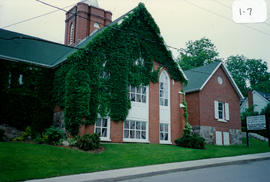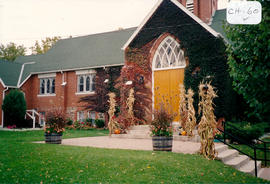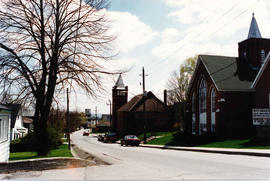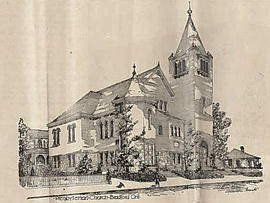The original Trinity Anglican Church (located at 60 Church Street) was built in 1851 and then destroyed by fire in 1900. Eight months later, the current structure (built in the Gothic Revival style) was opened for service under the Rev. Canon George Benjamin Morley.
The structure has a cruciform plan, 1½ storeys, and a steeply-pitched, gable roof with a steeple. The main entrance is through an enclosed narthex dominated by a large, gothic, arched opening. It has large, rectangular, double doors with a multi-foiled transom light above (not original). Shallow buttresses support the side walls and steeple. Three narrow, gothic, arched windows are set into wide, rectangular openings to light the nave. The windows are narrow with a vertical emphasis. There are concrete lintels and lug sills. The three-part, gothic, arched windows refer to the Trinity. The building has wood frame construction with brick cladding and a cut-stone foundation. According to the 2000 inventory, the church is in excellent condition with most of its original features.
In 2004, Trinity Anglican Church purchased the adjacent former Presbyterian Church building and land. The vacant building was demolished in 2005 to provide additional parking for the congregation of Trinity Anglican Church. (1, 3, 5, Trinity Anglican Church Bradford website)




